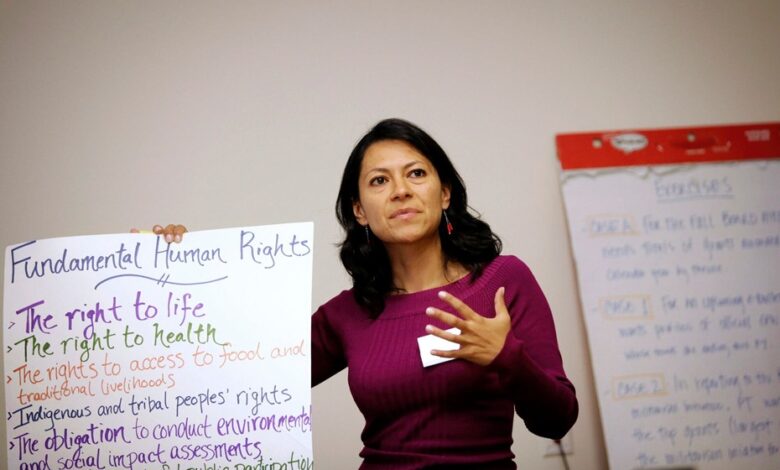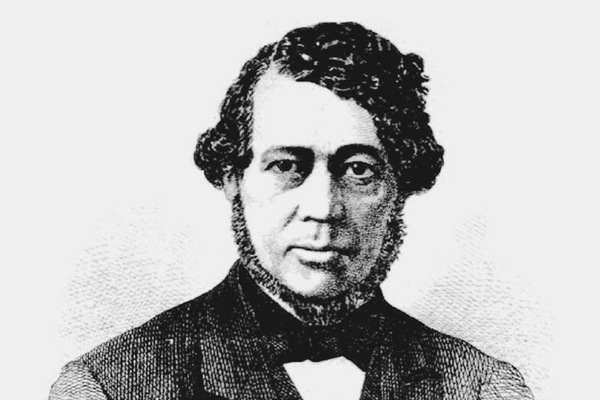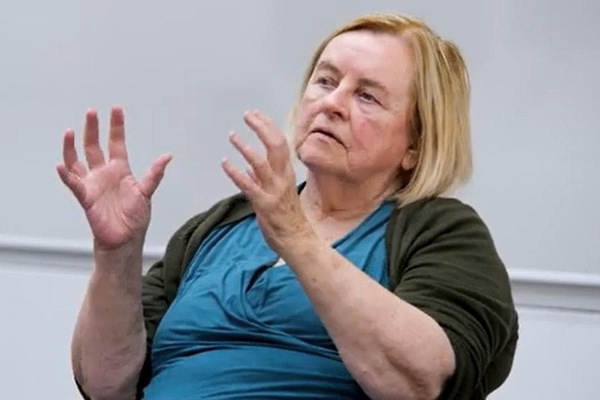2025 Thomas D’Arcy McGee Summer School Will Focus on Climate Justice and Human Rights

This years Thomas D’Arcy McGee Summer School will focus on Climate Justice and Human Rights in an Unravelling World
The event held annually at Carlingford Heritage Centre in the County Louth village takes place from 2–3 September with the theme ‘Climate Justice and Human Rights… in a Changing World Order?’
Against a backdrop of war, disinformation, and environmental collapse, the Thomas D’Arcy McGee Summer School returns to Carlingford with an urgent focus: how climate justice, democracy, and human rights are being undermined by authoritarianism, corporate influence, and political inertia.

Now in its fourteenth year, the Summer School coincides with the bicentenary of McGee’s birth. A Young Irelander, Irish-Canadian statesman, and Father of Canadian Confederation, McGee’s enduring belief in dialogue, pluralism, and democracy remains central to this unique gathering.
A Moment of Reckoning
Following the United Nations’ 2022 recognition of the right to a healthy environment, global efforts to achieve climate justice face mounting resistance. The return of President Trump’s administration has accelerated attacks on international cooperation, environmental safeguards, and human rights commitments.
Organisers of the Summer School warn of a rapid erosion of multilateralism and a dangerous retreat from hard-won global agreements.
“We face an existential crisis not just of climate, but of trust, truth, and governance,” organisers said.
“This Summer School will challenge unsubstantiated opinion and disinformation with hard evidence and lived experience.”
UK Embassy Under Fire for Gold Mine Lobbying

These issues resonate locally following revelations that US politicians and the UK Ambassador to Washington, Lord Peter Mandelson, have been lobbying to accelerate approval for a controversial gold mining project in the Sperrin Mountains. They expressed American investor frustration and called for a “timely decision”, raising alarm about external corporate pressure on Northern Ireland’s planning process at the expense of the local environment and community. Fidelma O’Kane of Save Our Sperrins will join activists from a range of environmental campaigners in what promises to be an energetic community panel.
Global Voices
Confirmed speakers include:
Professor Astrid Puentes Riaño, UN Special Rapporteur on Human Rights and the Environment
Ambassador Dennis King, Canadian Ambassador to Ireland
Professor Jennie Stephens, Professor of Climate Justice, ICARUS Climate Justice Research Centre
Ambassador David Donoghue, Former Irish Ambassador to the UN
Professor Teresa Vicente-Giménez, University of Murcia
Professor David Wilson, University of Toronto and McGee Biographer
Bernadette McAliskey, Campaigner for Social Justice and Human Rights
Ambassador Bob Rae, Canadian Ambassador to the UN
Frances Fitzgerald, former Tánaiste, Minister, TD and MEP
Hon. Gilles Arsenault, Minister for Environment, Energy and Climate Action from Prince Edward Island
Eamon Ryan, former Minister for the Environment
Erin McGreehan TD, Denis Drennan President ICSMA, Adrian Kane SIPTU, Michael Savage Newry Chamber of Commerce, Clare McKeown Belfast City Council, Cllr Doire Finn Newry, Mourne and Down Council, Dr Gabriel Scally Fellow of the Faculty of Public Health, Professor Colin Harvey Queen’s University, Heidi McIlvenny The Fishery Exchange, Fiddle O’Kane Save our Sperrins, Declan Owens EcoJustice Ireland, Dr Eduardo Salazar Ortuño University of Murcia, Colum Sands musician and environmental campaigner, Thelma Thompson Altnaveigh Trust.
Why It Matters Now
This year’s Summer School will explore urgent local and global issues, and look towards visible leadership, effective governance, and collective action for sustainable development, including:
- How can we promote sustainable models of growth that do not impact negatively on the environment, climate, and health?
- How should we strengthen our local and global institutions and laws that protect human rights and climate justice, and face down those who would try to undermine them?
- How do we challenge industrial and agricultural pollution and extractive development and ensure that the rights of nature, community knowledge, and respect are at the centre of decisions?
- How can we raise public awareness about the growing support worldwide to give nature intrinsic rights?
“Ecosystems are not objects, as they have been treated until now; they have their own life, and human beings are a part of them. Without them, we cannot live”, says Professor Vicente-Giménez.
UN Rapporteur Astrid Puentes Riaño believes that this moment demands more than action – it demands rethinking our place on earth. “The earth does not need to be saved by us. Our role is to learn how to live on this planet without destroying it. … The right to a healthy environment is not idealistic, it’s foundational and true protection begins … with fairness,” she said.
“In this Summer School, we will ask how can we act to safeguard a world order premised on respect for the environment and the human race,” said the organisers.
Key Speakers
Professor Astrid Puentes Riaño, UN Special Rapporteur on Human Rights and the Environment. Colombian born and now a Mexican Professor of Law, she led the InterAmerican Association for Environmental Defence to support the people of La Oroya in Peru, a precious metals mining town that was included in a report of ‘The World’s Worst Polluted Places’.
Professor Teresa Vicente-Giménez is a Goldman Environmental Prize winner. She will speak about successful pioneering of a law that granted legal rights to the Mar Menor in Spain, saving its ecosystem from collapse. Considered to be the most important saltwater coastal lagoon in the western Mediterranean, the once pristine waters of the Mar Menor had become polluted due to mining, rampant development of urban and tourist infrastructure, and intensive agriculture and livestock farming.
Ambassador David Donoghue, as Ireland’s Permanent Representative to the UN, co-chaired the UN negotiations on the Sustainable Development Goals.
Professor Jennie Stephens is Professor of Climate Justice at the ICARUS Climate Justice Research Centre at Maynooth University. Her book ‘Diversifying Power’ explores how inclusive climate leadership can transform policy.
Bernadette McAliskey, is a campaigner for social justice and human rights. She was a civil rights leader and, at age 21, became the youngest female MP in Westminster (at the time). She was a founder and is CEO of the South Tyrone Empowerment Programme. She is an active member of the Lough Neagh Development Trust.
Ambassador Dennis King was appointed Canada’s Ambassador to Ireland in March. He served as premier of Prince Edward Island for six years just prior to becoming Ambassador. He was formerly a journalist.
Professor David Wilson is Professor of History and Celtic Studies at the University of Toronto, and the Thomas D’Arcy McGee biographer.
